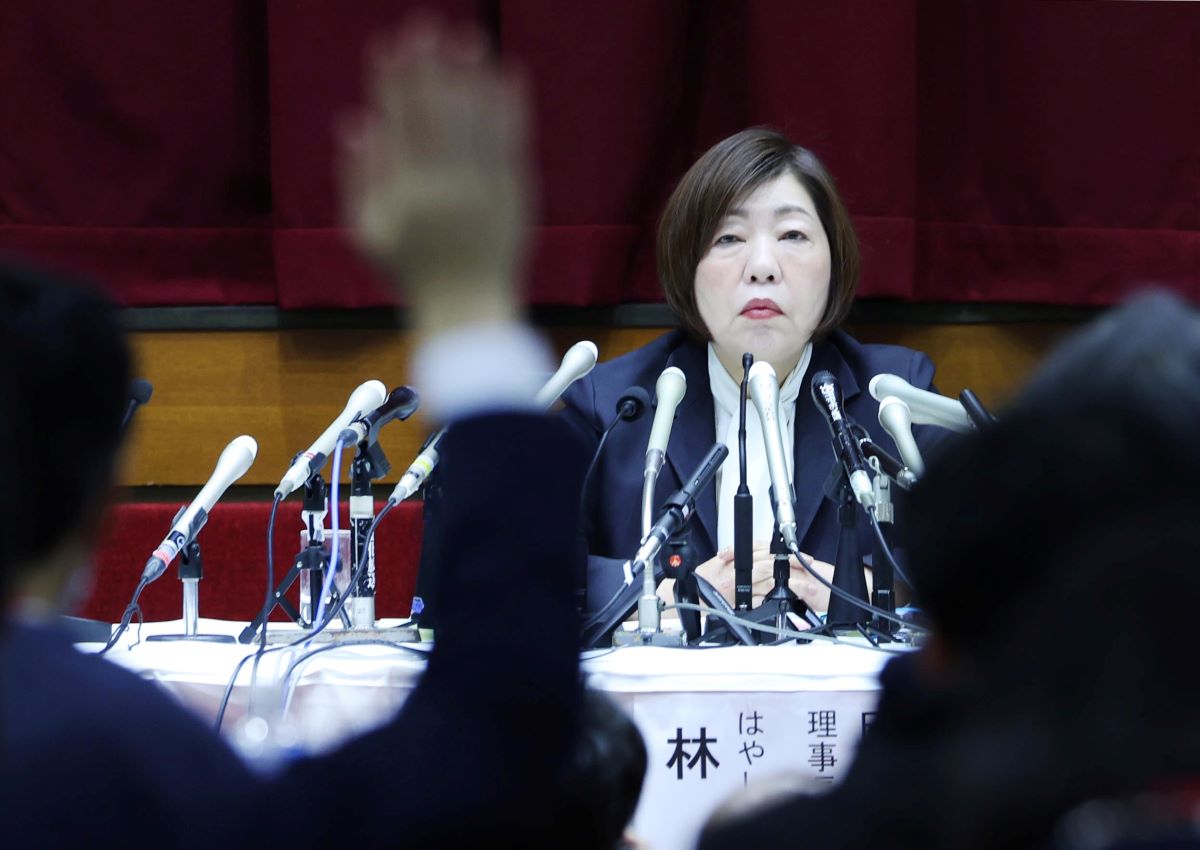
Mariko Hayashi is chairman of the board of trustees of Nihon University. Recently, she and other officials held a press conference concerning the scandal involving the use of illegal drugs by members of that school's American football team.
Hayashi apologized to students for the confusion surrounding the issue. "I want to fulfill my responsibility to accomplish reforms," she said. Nonetheless, the substance of those reforms is not clear.
University officials started the December 4 news conference by explaining a proposed reform plan for university operations. Nihon University president Takeo Sakai and vice president Yasuhiro Sawada are to resign, and Hayashi herself will take a pay cut. These punishments were based on the board's view of the three officials' degree of responsibility for the affair. Within the improvement plan, Sakai's responsibility was judged "heavy," Sawada's "heaviest," and Hayashi's "by no means light."
Additionally, the manager and coaches of the American football team, have yet to be punished. As for their responsibility, it was simply noted that "it cannot be said that it doesn't exist."
Hayashi termed it a "fair decision by the board of trustees." However, there was a report of a third-party committee on which the evaluations were based. It criticized Hayashi's failure to direct the investigation or report to the board of trustees as "a grossly inappropriate response."
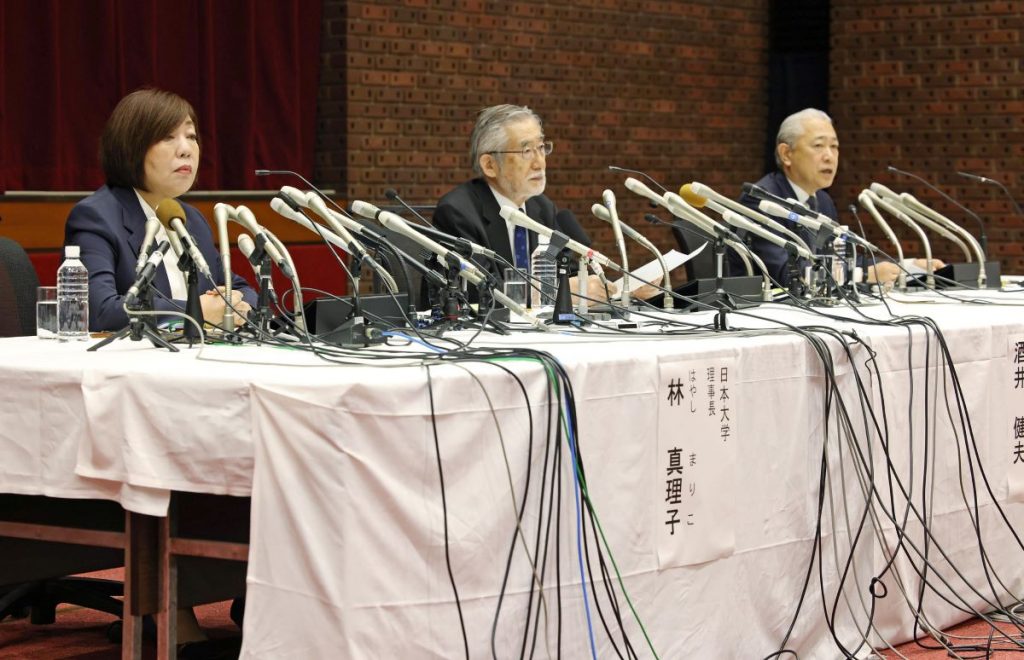
The Report's Findings
The report found that "an early and appropriate organizational response could have avoided the loss of trust." It also put the blame squarely on the football team's leadership.
In the beginning, the improvement plan clearly stated that the main cause of the problem was a "village mentality." This, it said, was reflected in a desire "to keep the football team's affairs within the football team."
Also attending the meeting was Toshiyuki Mashiko, director of the university's College of Sports Sciences. He admitted, "The responsibility of the coaching staff is also great."
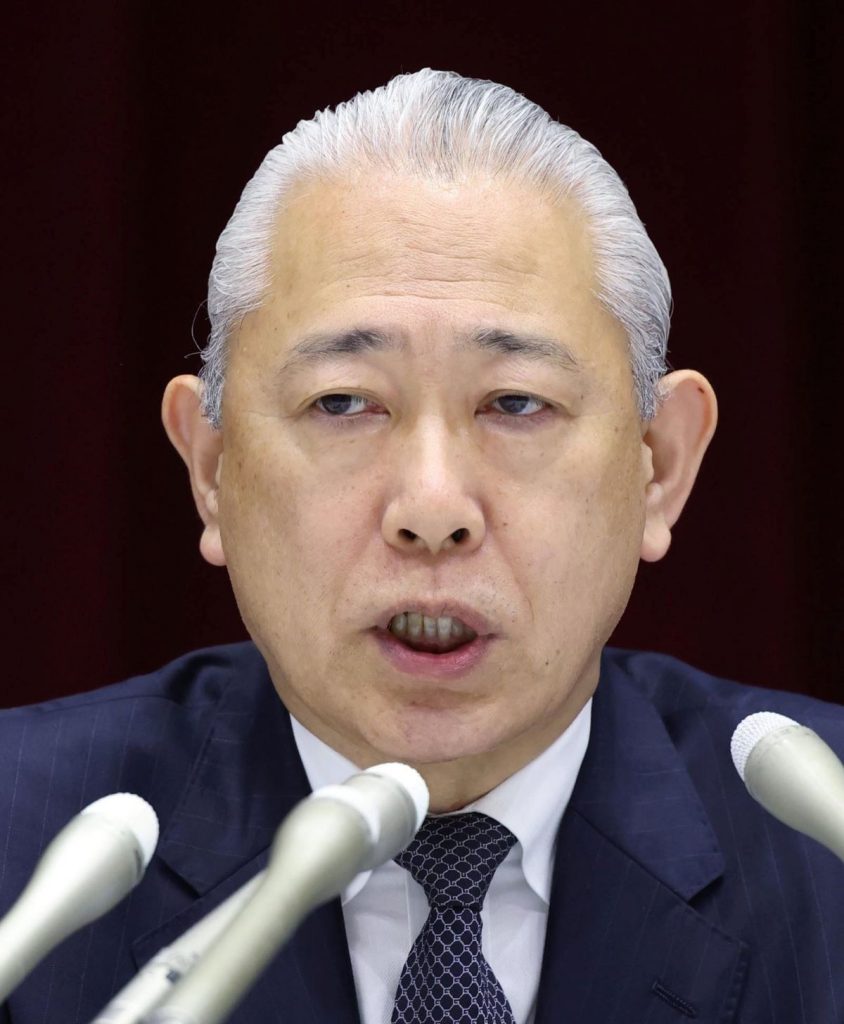
Shirking Responsibility
Even so, the coaching staff of Nihon University alumni was protected. If such contradictions in the underlying assessment are allowed, it will be impossible to create a correct approach for the future.
Such insipid evaluations of the problem, however, do not threaten Hayashi's position on the board. That is reflected in the bombastic statement she made to the press. She said, "We believe that student sports are a major pillar of change for Nichidai (Nihon University). And if we can change student sports here at Nihon University, we can change student sports in Japan."
However, regarding any "plans to abolish the football program," she asked for the public's understanding. Explaining, she indicated a need for time before revealing her thinking. Moreover, when asked whether or not the university president, who is due to resign, should make the final decision on abolishing the program, she was again evasive. She only said, "I don't know since I haven't asked the president's thoughts on the matter."
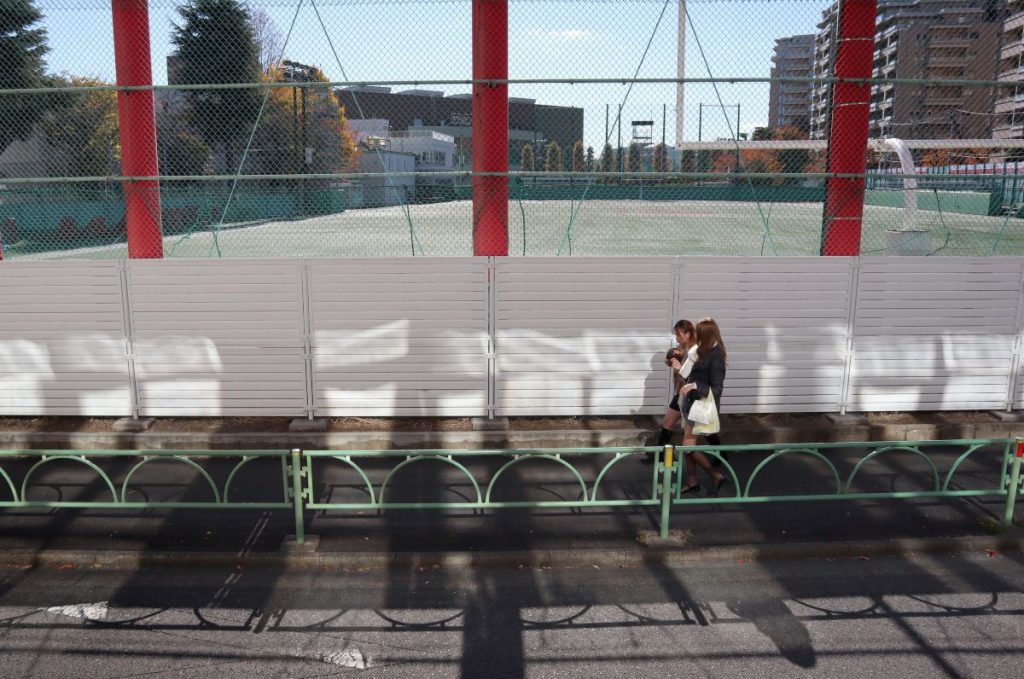
In Need of Strait Answers
Hayashi evidenced no will or resolve in her spineless answers.
During the press conference, a reporter from the student paper at Nihon University asked for a more concrete plan of action. "As a student, I am filled with a sense of despair," the young reporter said, adding, "Where do you think the solution to the problem lies?"
Hayashi replied: "I really feel bad for the students. I believe the best solution is to end this problem as soon as possible." Here she probably was expressing her true feelings.
However, the roots of the problem run deep. Furthermore, aiming for a hasty resolution to the situation will only invite deeper confusion.
RELATED:
- EDITORIAL | Gummies? Piecemeal Designation of Dangerous Drugs Won't Work
- More Bad Ideas from the Japanese Gov’t: 18 Year Olds and Medical Marijuana
- The Essence of Nihon University's American Football Fiasco
(Read the editorial in Japanese.)
Author: Editorial Board, The Sankei Shimbun

Nagoya Basho Tournament Records
| Day | Opponent | Result |
|---|



















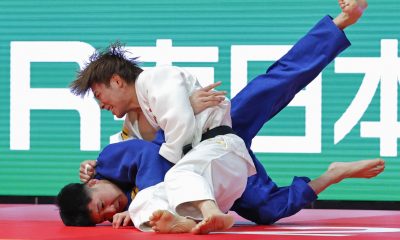

You must be logged in to post a comment Login